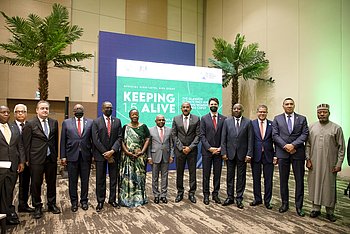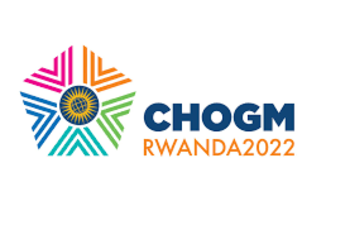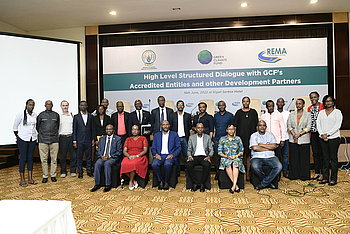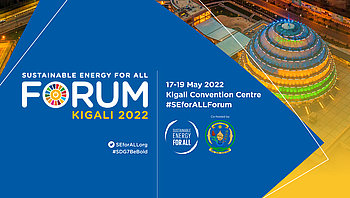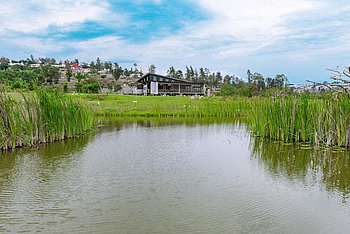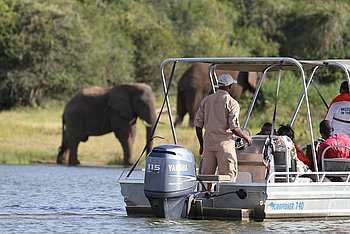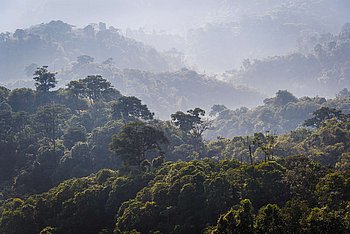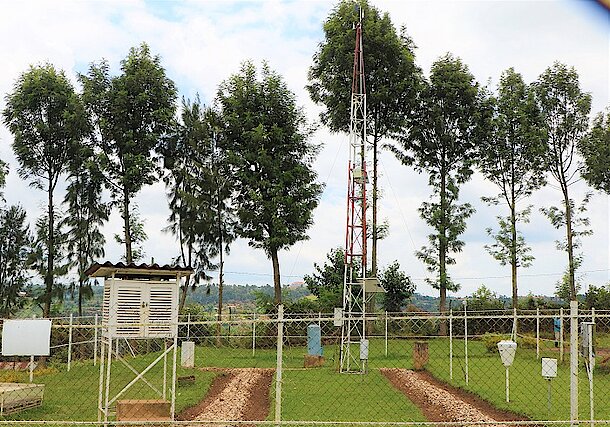
How Rwanda is using climate change data and projections to plan for the future
In 2011, Rwanda adopted a Green Growth and Climate Resilience Strategy to become a developed, climate-resilient, and low-carbon economy by 2050. To achieve this goal, the government and its stakeholders are working to reduce emissions and foster climate resilience.
One of the strategy’s programmes of action is ‘Climate Data and Projections’, which was designed to maintain climate change records and provide data to help the country prepare for a warmer world through new technologies and capacity building.
Having access to climate data and projections is essential for Rwanda to respond to climate change using evidence-based policymaking. Therefore, a number of institutions came together to track and manage climate-related data, including Meteo Rwanda, the Ministry of Education, the Rwanda Environment Management Authority, the Rwanda Green Fund, and the Massachusetts Institute of Technology (MIT). This effort includes regular measurements, weather forecasts, data management, information sharing, and climate knowledge and education.
Work is underway to build Rwanda’s capacity to advance the national adaptation planning process and is being implemented by Meteo Rwanda and the Rwanda Environment Management Authority. One of the activities is climate change projections for Rwanda on different timescales such as 2030, 2040, 2050, and 2080. Those projections will be used to develop climate risk assessments and to inform policy-makers and planners about climate risks.
In addition to this ground-breaking project, here are three other initiatives that are enabling Rwanda to better understand its climate today and more accurately predict how it will change into the future.
- Rwanda Climate Change Observatory
The Rwanda Climate Change Observatory is a world-class project initiated in 2011 by the Ministry of Education in collaboration with the MIT to measure climate change on Mount Mugogo in terms of greenhouse gases (GHG), meteorological parameters, other climate change factors as well as building skills in storing, processing and archiving GHG data from different sectors.
The Climate Change Observatory is part of WMO's Global Atmosphere Watch network measuring greenhouse gases and air quality. As a World Meteorological Organisation Global Atmosphere Watch station, it contributes to an international network of observation systems supporting the global response to climate change.
This initiative has strengthened research on climate change and atmospheric sciences, presented education opportunities for Rwandans and trained them on effective climate data maintenance and analysis.
- Investing in Meteo Rwanda forecasting and climate modeling
The Rwanda Meteorology Agency (Meteo Rwanda) provides accurate, timely weather and climate information services for the safety of life, property and for the socio-economic development of the country. The agency collects, gathers and accesses meteorological data from weather stations around the country. The data are analyzed in parallel with data from other sources to generate the weather forecast of different ranges of time (nowcast, short, medium, and long ranges forecast), with the aim of supporting socio-economic development.
Given the importance of weather and climate data for responding to climate change, significant investments have been made to boost the capacity of Meteo Rwanda. This has been done through an investment from the Rwanda Green Fund called ‘Strengthening Rwanda's Weather and Climate Services to Support Development’. This initiative provided new monitoring equipment and increased the technical skills that lead to improvement of the range of weather and climate information available to inform decision making at all levels in Rwanda,
This project installed climate change and air quality monitoring infrastructure and provided training to inform decision-making and enforcement activities. The infrastructure provides data for regulators and is being used as a research tool in higher learning institutions. Data is now being provided to climate modellers to increase climate change consequence modeling in Rwanda and across the region
- Building a nationwide Air Quality Index
Rwandans can now access real-time air quality information thanks to a new website and mobile application launched by the Ministry of Environment, Rwanda Environment Management Authority, and Rwanda Meteorology Agency.
The countrywide air quality monitoring system provides data on the quality of the air in twenty-three sites across the country. The Air Quality Monitoring System was developed through the Air Quality and Climate Change Monitoring Project, which has been funded by the Rwanda Green Fund (FONERWA). It was designed in collaboration with the Massachusetts Institute of Technology and implemented by the Rwanda Environment Management Authority and the Ministry of Education.
The system provides a real-time Air Quality Index (AQI) for each station in both numerical and color code format. The system highlights the dominant air pollutant which is responsible for air quality degradation during the reported period for each station. It will help Rwanda to compare ground observations data with satellite data through remote sensing technology to verify their accuracy.
The system strengthens Rwanda’s existing field-installed air quality monitoring network by providing online access to pollution readings from each station as well as data management including data sharing mechanisms.
Visit the Air Quality Monitoring System here:
- Website: www.aq.rema.gov.rw
- Mobile App (Android): https://play.google.com/store/apps/details?id=rw.gov.rema.aqi
Learn more about Rwanda’s efforts to use data to prepare for the future atwww.meteorwanda.gov.rw.
Topics
More posts
COMMONWEALTH LEADERS MEET IN KIGALI TO DISCUSS WAYS OF KEEPING THE 1.5-DEGREE GOAL ALIVE
The Governments of Rwanda and the United Kingdom together with the Presidency of the United Nations Climate Change Conference (COP26) have on 23rd Jun…
Climate change as key issue that are of special in the CHOGM – 2022 discussion
The effects of climate change are being felt throughout the Commonwealth, with some Member States experiencing climate change impacts, which is a…
Public and Private sectors, Green Climate Fund accredited entities and development partners joined in the structured dialogue
On 16 June 2022 at Kigali Serena Hotel, the public, private sectors, Green Climate Fund (GCF) accredited entities and development partners have joined…
REMA AND HIGHER LEARNING INSTITUTIONS AGREED TO ENHANCE PARTNERSHIP IN ENVIRONMENT AND CLIMATE CHANGE RESEARCH
As part of the “World Environment Day Celebrations”, Rwanda is holding its annual National Environment Week. The week begun on Saturday 28 May by the…
Global Leaders Convening Tomorrow at the SEFORALL Forum in Kigali for Landmark Event on Energy and Climate
At a time when far greater action is needed to fight climate change and to reduce global inequalities, the 2022 SEforALL Forum will commence tomorrow,…
Six ways Rwanda is building climate resilient transport systems
Over the last decade, Rwanda has invested in building efficient and resilient transport systems. Guided by the country’s Green Growth and Climate…
Six ways Rwanda is being water wise in the face of climate change
Access to water underpins public health and is critical to sustainable development. Availability of water is also critical for any country’s…
Five ways Rwanda is investing in ecotourism and conservation
Rwanda is located in the Albertine Rift, a region considered especially rich in biodiversity, making it ideal for conservation and ecotourism. From…
How Rwanda is putting its forests first in the fight against climate change
In 2011, Rwanda introduced a Green Growth and Climate Resilience Strategy to guide the country to become a developed, low carbon economy by 2050.…
